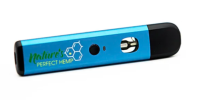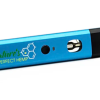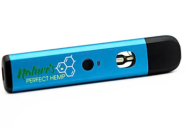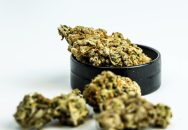The world of hemp-derived cannabinoids can be confusing, especially with various forms of THC emerging under names like Delta 8, Delta 9, and Delta 10. While they all share the “THC” label, their effects and scientific underpinnings differ. Buckle up as we delve into the science behind these popular delta products, exploring their mechanisms of action and navigating the ever-evolving legal landscape.
Delta 9: The Classic Cannabinoid
While often nicknamed “THC,” Delta 9 is more than just the psychoactive buzz associated with cannabis. This key component interacts with the brain’s CB1 receptors, triggering the well-known “high” but also influencing mood, perception, pain, and memory across various brain regions. However, its psychoactive nature means Delta 9 remains federally illegal in the United States, despite individual states legalizing it for recreational or medical use. This product is available in the market as THC Gummies, tinctures, oils, vapes and other edibles.
Delta 8: The Legal Loophole
Delta 8, with a slight structural difference in its carbon chain, offers a milder psychoactive experience compared to Delta 9. This difference in structure also affects its legal status. While federally derived Delta 8 remains restricted, Delta 8 derived from hemp (with less than 0.3% Delta 9 THC) exists in a legal gray area due to the 2018 Farm Bill. However, individual states are enacting their own regulations, creating a complex patchwork of legality.
Delta 10: The Newcomer
The newest player in the game, Delta 10, possesses even less research and a murkier legal landscape. Some suggest it offers milder psychoactive effects than Delta 8, but its exact mechanism of action and safety profile remain largely unknown. Due to its novelty, regulatory bodies haven’t established clear guidelines regarding its legality, and its long-term effects are yet to be understood.
What Drives Their Popularity?
Despite legal uncertainties, these alternative delta products attract users for various reasons:
Potential for less intense psychoactive effects: Some users seek milder experiences compared to Delta 9, and Delta 8 or 10 might appear as options.
Accessibility: In areas where Delta 9 remains illegal, Delta 8 may be available, creating a perceived legal alternative.
Limited research: While research on Delta 9 is extensive, the lack of studies on Delta 8 and 10 leads to anecdotal claims and misinformation, potentially attracting curious users.
Proceed with Caution: A Word of Warning
While the allure of these delta products exists, it’s crucial to exercise caution due to several factors. The long-term effects and potential risks of Delta 8 and 10 are largely unknown, warranting a cautious approach. Due to the unregulated nature of some markets, product quality and safety standards can vary significantly. The legal status of these products remains complex and can change, leading to potential legal consequences.
Moving Forward: Responsible Use and Research
As the world of cannabis continues to evolve, it’s important to prioritize responsible use and advocate for further research on these emerging cannabinoids. Here are some key takeaways:
- Seek reliable information from reputable sources and medical professionals before trying any new product.
- Choose reputable brands. Opt for brands that prioritize transparency, quality control, and third-party testing of their products. Nature’s Perfect Hemp has a variety of delta and hemp derived products ranging from Delta-9 10MG gummies.
- Start low and go slow. Begin with low doses and observe your body’s response before increasing the amount.
- Listen to your body. Be mindful of any adverse reactions and stop using the product if you experience discomfort.
- Support research. Advocate for and participate in research efforts to gain a deeper understanding of the potential benefits and risks of these cannabinoids.
Conclusion
Navigating the world of Delta 9, Delta 8, and Delta 10 requires a critical and informed approach. Understanding the science, legal complexities, and potential risks is crucial before using any of these delta products. Responsible consumption involves seeking reliable information, prioritizing product quality, and being aware of evolving regulations. Ultimately, informed choices ensure a safer and more positive experience in this ever-changing landscape.


















